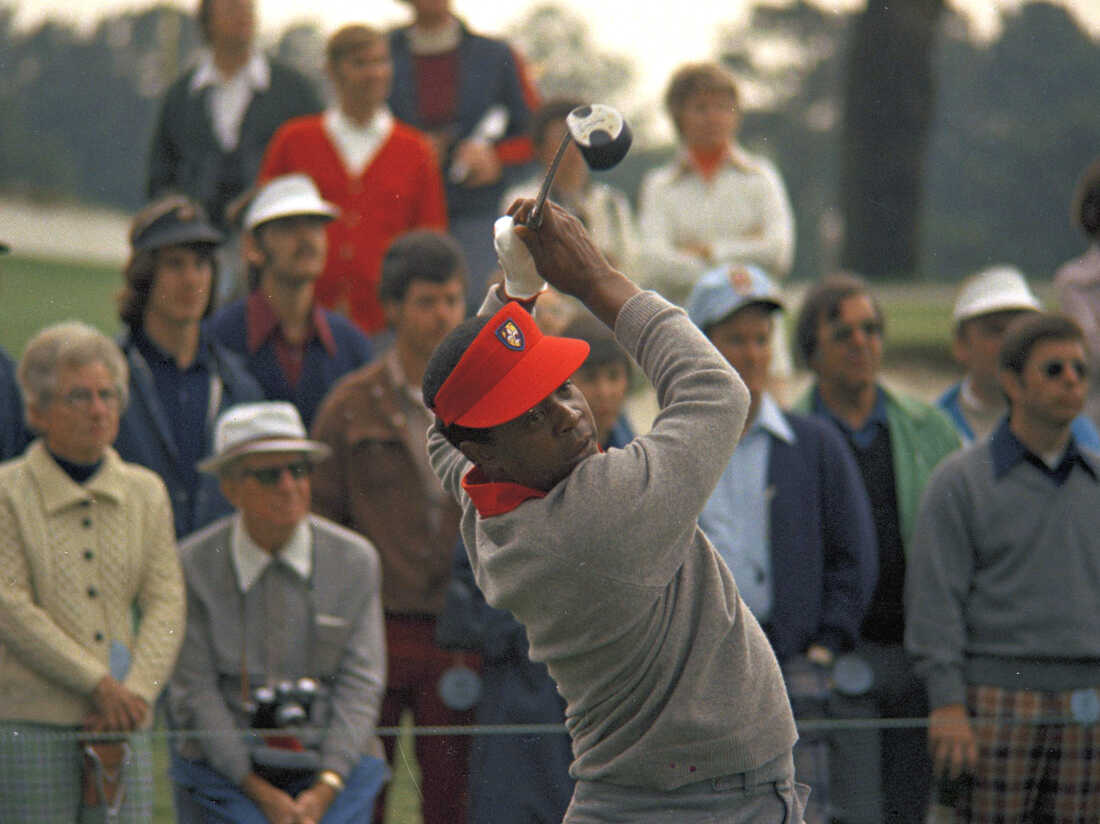According to NPR, Lee Elder, who was the first Black golfer to play at the Masters, died early Sunday morning at the age of 87.
No cause or details about his death were immediately available, but the PGA Tour said it confirmed Elder’s death with his family.
Although there were other professional African American golfers who came before him, Elder made history in 1975, breaking the sport’s race barriers when he competed at Augusta National Golf Club in Georgia after winning the Monsanto Open, his first pro tournament.
That victory qualified him to play in the prestigious Masters tournament the following year. But even then, it was unclear whether the 40-year-old would be invited to actually play at the famous competition, which had yet to be integrated.

Elder turned pro in 1959, joining the United Golf Association, a tour specifically for African American golfers who were prohibited from the PGA Tour due to its “Caucasian only” clause.
Nearly a decade later, Elder earned his PGA tour card in his first attempt in 1968, and in that first full year he tied the legendary Jack Nicklaus for first place in the American Golf Classic, before losing in sudden death. He would go on to win four PGA Tour events and eight PGA Championship titles on the 50-and-older senior circuit.
Over the years, Elder recounted the blatant and undisguised prejudice he faced throughout his career.
Leading up to his historic appearance at the Masters, Elder said he received up to 100 death threats.
“I was scared to death,” he told an audience 37 years later.
In fact, he was so shaken that Elder moved between two different rented houses during that week in 1975, so that the bigots who had sent menacing letters and made vile phone calls to his home wouldn’t be able to track him down.
Another time, less terrifying but nonetheless humiliating, he was forced to change in the parking lot of a Pensacola country club because Black players were not allowed in the locker room.
Other great professional African American players preceded him, including Charlie Sifford, Howard Wheeler, Bill Spiller and Ted Rhodes, who had tutored him to become a better player. They had truly suffered the brunt of the most brutal racism in the sport, he told NPR.
